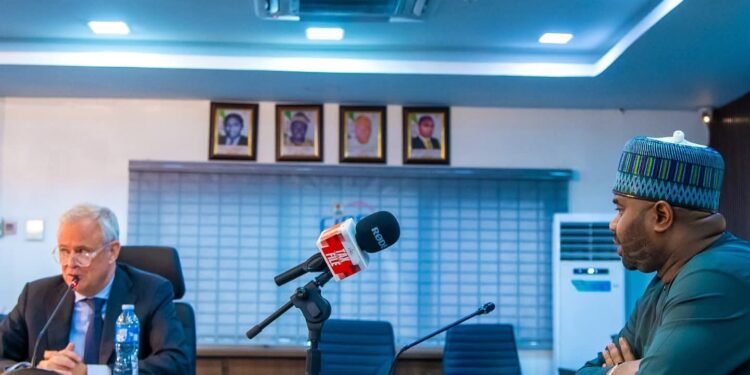The Kingdom of the Netherlands has formally commenced talks with the Federal Government of Nigeria to renegotiate their existing Double Taxation Agreement (DTA), becoming the first foreign partner to initiate such discussions following Nigeria’s recent tax reforms.
The renegotiation process was flagged off on Monday at the Revenue House in Abuja, where the chairman of the Federal Inland Revenue Service (FIRS), Dr. Zacch Adedeji, hosted a Dutch delegation led by the Netherlands’ Ambassador to Nigeria, Bengt van Loosdrecht, according to a statement that was issued by the Service on Monday night.
The event marks a step in Nigeria’s international tax diplomacy and alignment with global fiscal standards.
The move comes just days after President Bola Tinubu signed into law a suite of transformative tax reform bills on June 26, 2025—reforms designed to broaden Nigeria’s tax base, strengthen administration, and make the system more efficient and business-friendly.
Welcoming the delegation, Dr. Adedeji described the visit as timely and in harmony with the current administration’s fiscal objectives. He emphasised the urgency of revising outdated tax treaties to reflect both domestic changes and evolving international standards, particularly global efforts against Base Erosion and Profit Shifting (BEPS).
“Recent developments in the domestic and global tax landscape have made the review of the existing agreement unavoidable,” Dr. Adedeji stated. “This renegotiation meets with the policy objectives of the ongoing fiscal and tax reforms initiated by the administration of President Bola Ahmed Tinubu. We are committed to broadening the domestic tax base, strengthening tax administration, and ensuring that our tax system supports inclusive economic growth.”
The Nigerian government’s recent tax overhaul includes four major pieces of legislation: the Nigeria Tax Act, Nigeria Tax Administration Act, Nigeria Revenue Service (Establishment) Act, and Joint Tax Board (Establishment) Act. These laws restructure the country’s tax administration system and pave the way for the formal establishment of the Nigeria Revenue Service, set to take off on January 1, 2026.
Speaking during the opening session, Ambassador van Loosdrecht acknowledged the longstanding partnership between both nations and stressed the importance of good faith in treaty negotiations.
“The fact that we meet here today is an indication of the goodwill and the good faith in which we want to meet with each other,” the ambassador said. “I can assure you that my colleagues from the Netherlands will act in good faith. That is always an important basis for good negotiations.”
He added that while treaty talks can be technical, their essence lies in mutual understanding and consensus-building.
“Ultimately, a treaty is about finding common ground and building upon that common ground,” he noted. “I know both of our sides have very competent, professional teams, and I am confident we will have a very fruitful week.”
The renegotiation aims to modernize provisions in the current agreement, particularly those relating to the prevention of double taxation, which stakeholders say no longer reflect current economic realities. It also seeks to align with new global tax rules and Nigeria’s evolving fiscal policy direction.
The opening of the negotiation with the Netherlands signals a broader wave of diplomatic and technical engagements expected in the coming months as Nigeria works to update its tax treaties in line with the new legal framework.
Over the next six months, the government said it will focus on harmonising tax data, operationalising the new laws, and reviewing existing tax agreements to ensure their relevance and effectiveness under the new regime.



